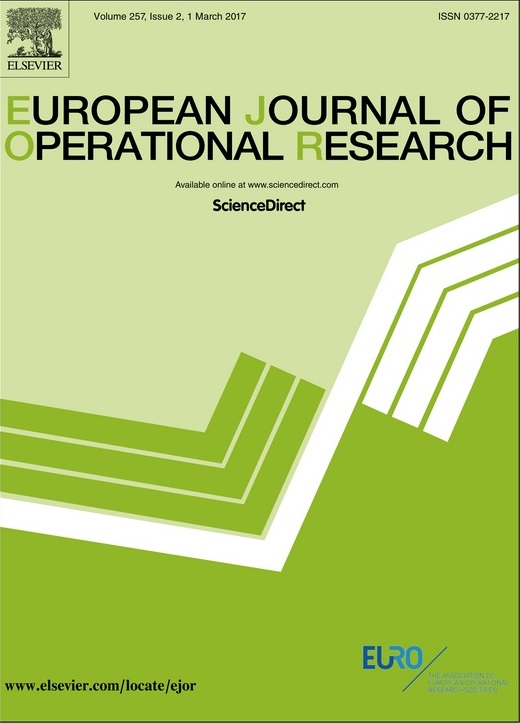Bernard Roy [1934-2017]

Bernard Roy[1] was born in 1934 (March) at Moulins (Allier) in the centre of France. He graduated in Mathematics in 1954 from (at that time unified) Université de Paris. He then obtained a postgraduate degree in Applied Mathematics in 1957 from the "Institut de Statistiques de l'Université de Paris". This was followed by a PhD in Graph Theory, supervised by Claude Berge, in 1961.
Already in 1957 Bernard Roy, just married to Françoise, started working, first for the CNRS and then for a newly established consulting company which, in turn, would become SEMA METRA International, a highly successful company and among the first to introduce at European level the use of Operational Research and Management Science in real world problems. In 1962 SEMA METRA created a Scientific Division, directed by Bernard Roy, who was in charge of developing methods and tools for the consulting activity of the company. Many acclaimed Operational Researchers had the opportunity to come to know OR through the activities of this division and the quarterly journal "Revue Scientifique de SEMA METRA" (whose editor in chief was Bernard) published between 1964 and 1977 and one of the most innovative journals in OR in Europe. Bernard's interest in Multiple Criteria Decision Analysis started during this period.
In 1972 Bernard left SEMA joining the newly established "Université Paris Dauphine", where he became full professor in 1974. In the same year he established a research centre which is known as LAMSADE, as well as one of the first Masters Degrees in France in Operational Research and Management Science, both of them being active today and internationally recognised. Bernard retired in 2001 turning to emeritus, but until his very last days has been very active in research and consulting. During these years Bernard trained PhD students, many of whom are among the most prominent OR researchers in Europe today.
Bernard Roy's contributions in Operational Research started from scheduling theory where he contributed (in the early 60s) one of the most original methods based on an "activity on node" formulation. Later on he contributed to graph theory with several outstanding results summarised in a two-volume book, still reputed today as fundamental in this area. However, Bernard is now internation ally recognised as being the founder of a distinguished school in Multiple Criteria Decision Analysis based on a constructivist approach to problem structuring and formulation as well as for creating a series of Multiple Criteria Decision Aiding Methods, named outranking methods, using concepts and tools from social choice theory and graph theory.
In 1975 Bernard Roy created the EURO MCDA working group, within the just established Association of European Operational Research Societies. The group have met regularly since then, every six months, (the last meeting, the 86th, took place in Paris last October) creating one of the most enduring scientific contributions in OR. Bernard has been President of AFCET (as was named the French society representing OR at that time) in 1976-78 as well as Honorary President of ROADEF (the French OR society). He has been president of EURO in the years 1985-86. He received the EURO Gold Medal in 1992 and the International MCDM Society Gold Medal in 1995 as well as the EURO Distinguished Service Medal in 2015. He has been received as Docteur Honoris Causa in six Universities (VUB, Liège, Fribourg, Poznań, Laval and Crete).
Bernard Roy already started having visual impairment problems as a child. This problem never being solved turned him almost blind as a young man and ultimately completely blind, while he remained fully active in science. This did not impede Bernard in pursuing his astonishing scientific career, but he was also able to establish a happy family, to be a wine enthusiast and to travel all around the world. He lost his beloved Françoise in 2015, but he is survived by four children and many grandchildren.
Bernard leaves behind him an immense scientific and human legacy: a legacy to be continued by the tens of scholars trained by him and the hundreds of researchers and practitioners who have been influenced by his original vision of Operational Research Theory and Practice.
Paris 29/10/2017
Alexis Tsoukiàs
Director of LAMSADE
1. [This text is essentially based upon an extended article which appeared in 2011: Denis Bouyssou & Daniel Vanderpooten, Bernard Roy, pp. 753-773, in Profiles in Operations Research: Pioneers and Innovators, A. A. Assad & S. I. Gass (Eds.), Springer, 2011, ISBN: 978-1-4419-6280-5]

This work is licensed under a Creative Commons Attribution-ShareAlike 3.0 International License and the GNU Free Documentation License (unversioned, with no invariant sections, front-cover texts, or back-cover texts).



